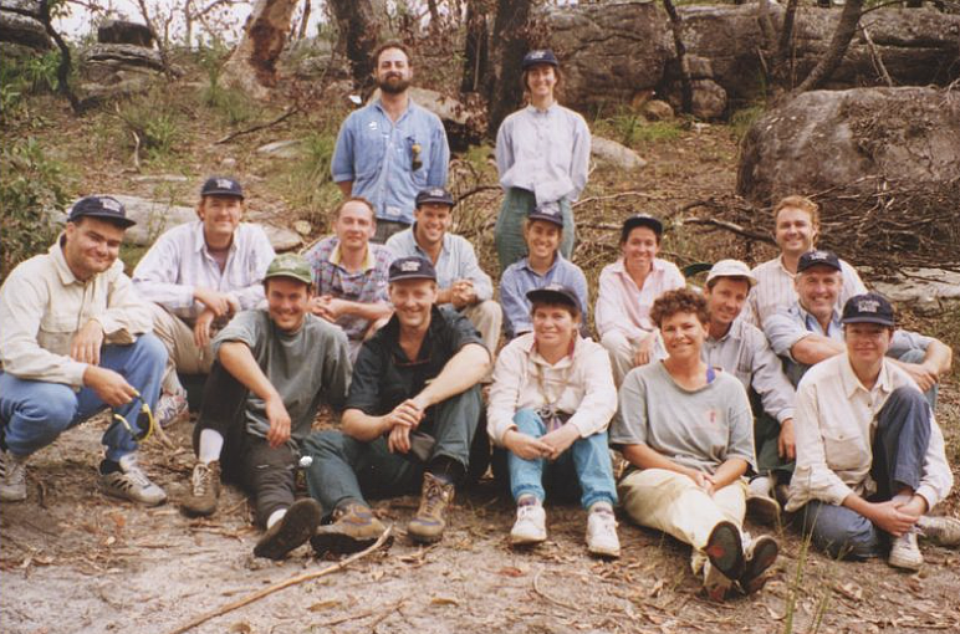
ICDA and BoardPro partnership unlocks digital governance tools for not-for-profits nationwide
Posted on 10 Dec 2025
Adele Stowe-Lindner, Executive Director, Community Directors The Institute of Community Directors…
Posted on 02 May 2024
By Greg Thom and Matthew Schulz, journalists, Institute of Community Directors Australia

A former drug addict and homeless man who turned his life around after volunteering at a Western Australian community centre was among the winners at the Infoxchange Australian Not-for-profit Technology Awards.
Jaron Green picked up the Best Accidental IT Person award for his work with St Patrick’s Community Support Centre at the ceremony this week.
The award recognises a volunteer or staff member who has positively impacted the lives of others by taking responsibility for their organisation’s IT system, despite it not being originally being a formal part of their role.
Jaron went from experiencing significant hardship as a client of St Pat’s to managing the in-house IT operations for one of WAs key homelessness support services and community housing providers.
“I honestly feel like Cinderella right now,” said Jaron while accepting his award.
Jaron was homeless and unemployed when he began volunteering at St Pat’s five years ago, performing tasks such as cleaning the toilets.
“I want to thank everyone at St Pat’s but mostly my manager who plucked me out of obscurity and gave me an opportunity,” he said.
“They’re [St Pat’s are] my family and I hope to do more in the future. This is awesome!”
The awards, which celebrate the best in technology innovation and excellence in the NFP sector, were held in conjunction with this week’s Infoxchange Technology for Social Justice conference in Melbourne.
The judging panel included Community Council for Australia CEO David Crosbie, Infoxchange chief operating officer Jo Davies, youth advocate Elvis Martin, and First Nations tech executive Brenz Saunders, the CEO of Cheedoona Energy.

“This is really an opportunity to celebrate so many of the unsung heroes that we have across the not-for-profit sector.”
The Not-for-profit Technology Innovator of the Year award went to legal services charity Justice Connect.
The organisation was applauded for strengthening the legal help sector by developing an artificial intelligence tool which helps to identify people's legal issues and connects them to the right support.
The game-changing tech relies on a "natural language" processing algorithm, allowing help-seekers to ask questions about their legal dilemmas in their own words.
Justice Connect first started developing the technology six years ago. Since then, the system has helped countless people in need who would otherwise have go without to gain access to legal support.
Speaking to the Community Advocate after the awards presentation, Justice Connect’s acting head of innovation, Tom O’Doherty, said the organisation’s use of artificial intelligence helped people avoid the “referral roundabout … where people get sent to another service, and another service because they can’t clearly articulate their legal problem.”
“This gives them a bigger understanding, and one of the biggest impacts has been that we’ve had far fewer partial [incomplete] entries, which means people have had much more confidence to complete their queries.”
The Best Technology Achievement by a First Nations Person or Group award went to the Victorian Aboriginal Community Health Organisation (VACCHO) for its Wominjeka (Welcome) system.
The project blends a case management system, a wellbeing app, SMS and communications into what was described as a new benchmark for combining culturally safe client management solutions for Indigenous health, wellbeing and justice services.
The award was accepted by Sherry Swanson, strategic project and product manager at VACCHO, who paid tribute to the many people involved in bringing the project to life.
“It’s recognition and testament to the dedication and passion and collaboration of all of those involved in Wominjeka.”
Other award winners included Brian Hibben, from the Artworks Community Studio in South Australia, who was named Technology Volunteer of the Year.
The Smith Family won the Best Use of Data for Community Impact award for its Education Dashboard South Australia (EDSA) system, which uses data and technology to address educational inequality by putting real-time data into the hands of frontline staff.
Calxa won the the Technology for Community Impact award, which recognises a private sector business which has made a highly valued contribution to the NFP sector and broader community using technology.
Since 2001, in partnership with Connecting Up and Tech Soup NZ, the company has donated $2.5 million worth of budgeting and reporting software to more than 1,350 NFPs.
Infoxchange CEO David Spriggs praised the calibre of the 70 award nominations from across the NFP sector.
“I would like to give an award to every single one of those organisations. They were just incredible, each and every one of them.
“This is really an opportunity to celebrate so many of the unsung heroes that we have across the not-for-profit sector.”

Posted on 10 Dec 2025
Adele Stowe-Lindner, Executive Director, Community Directors The Institute of Community Directors…

Posted on 10 Dec 2025
The Australia Institute has called on the federal government to force Australian businesses to be…

Posted on 10 Dec 2025
Economic empowerment is essential to enabling recovery, restoring agency and preventing future…
Posted on 10 Dec 2025
A long-time advocate for rough sleepers in northern New South Wales has been named her state’s…

Posted on 10 Dec 2025
What a year 2025 has been, particularly at a national level where the Parliament and politics as we…

Posted on 10 Dec 2025
Anyone working in an organisation knows it: meetings follow one after another at a frantic pace. On…

Posted on 10 Dec 2025
As a qualified yoga instructor who learned the practice in her hometown of Mumbai, Ruhee Meghani…

Posted on 10 Dec 2025
Community Directors trainer Jon Staley knows from first-hand experience the cost of ignoring…

Posted on 10 Dec 2025
Stressed, overwhelmed, exhausted… if you’re on a not-for-profit board and these words sound…

Posted on 10 Dec 2025
The Institute of Community Directors Australia trains over 22,000 people each year, which gives us…

Posted on 09 Dec 2025
The late Sir Vincent Fairfax is remembered as a business leader, a chairman of AMP, and an active…

Posted on 08 Dec 2025
A pioneering welfare effort that helps solo mums into self-employment, a First Nations-led impact…